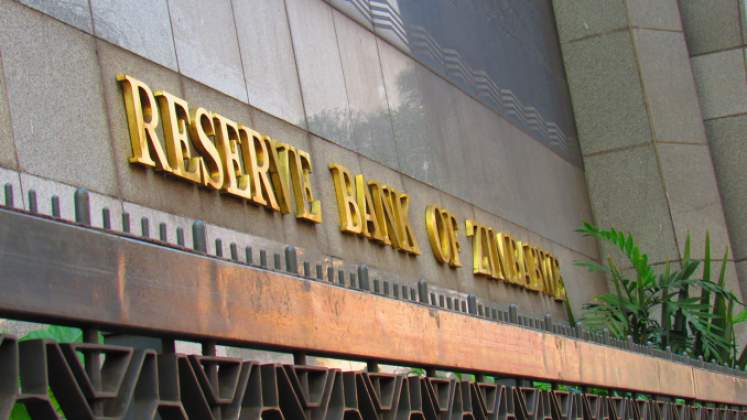The integrity of the Reserve Bank of Zimbabwe (RBZ) as the regulator of the financial services sector has come under the spotlight as the country battles cash shortages, exchange rate distortions and illegal forex trading.
Following the recent unprecedented surge in the exchange rates, that saw the Zimbabwe dollar trade at over ZW$20 against the United States Dollar, with prices of basic commodities also shooting beyond the reach of many, the central bank stepped in to address the challenge.
The RBZ immediately froze accounts of companies believed to be behind the exchange rates manipulation.
The government on the other hand through the promulgation of Statutory Instrument 212 of 2019 empowered the lender of last resort to penalise institutions and individuals found on the wrong side of forex trading.
On Monday, the RBZ issued an unprecedented directive banning the mobile cash-in, cash-out and cash-back facility, citing abuse of the platform by agents where cash is sold and bought at prices higher than the market rates.
The move by the central bank created confusion in the market, with EcoCash customers becoming the most affected as the platform could no longer work properly bringing many transactions to a standstill.
Riled by the RBZ ban, Econet took the apex bank to court through an urgent chamber application seeking a reversal of the directive, which it described as illegal and a violation of the country’s laws and Constitution.
However, before the Harare High Court could sit to hear the matter, the central bank on Wednesday reversed the ban.
Members of the public who were affected by the RBZ’s actions did not have kind words for the financial institution.
“The whole RBZ is confused,” said Kumbirai Nyandoro, a Bulawayo resident.
“As long as it (RBZ) is not independent from ZANU-PF, any policy they implement will fail.
He added that citizens were fasting losing confidence in the central bank.
Priston Levison, another Bulawayo, resident said: “The truth is that we have lost trust in government when it comes to financial systems especially where it has power to change things anytime. I would rather put my money in cash box at home than to put it in a bank or Ecocash. There is that fear that in any system controlled by the government you end up losing.”
Nkosana Dube, also Bulawayo resident said the actions of the central bank indicated that they were not sure of what do to address cash challenges facing the country.
“The reversal (of cash-out and cash-in ban) was a signal they had not thought through the whole process and its consequences which reveals either some incompetence or ignorance from their office,” he said.
“The RBZ’s integrity is tainted in many ways as seen by their vast regulations that haven’t yielded any positive result.”
He added the central bank’s actions were against the government’s mantra of Zimbabwe being open for business.
“RBZ has consistently shown disregard of the welfare of other economic actors,”said economist, Dumisani Sibanda.
“There’s a lack of consultation and regarding current developments in connection with EcoCash platform the authorities did not only fail to consult stakeholders but they also disregarded the impact this would have on the total economy.”
Sibanda said the reversal within two days reinforced the mistrust the public has against the central bank.
“This negatively impacts on confidence in the RBZ which is already low. They plan to increase cash and this should be a wait and see scenario. The forex issue has no solution.”
Another economist, Butler Tambo said RBZ’s operations leave a lot to be desired.
“The move by the RBZ to ban cash Out and cash In transactions was tantamount to curing the symptoms of a long-held disease instead of curing the root causes of the financial and economic cancer that has gripped Zimbabwe post the 2017 coup,” he said.
“The policy inconsistency by the apex bank shows high levels of cluelessness on the part of the monetary authorities and it can only backfire with no investors willing to come to Zimbabwe.
Tambo said Zimbabweans had long lost hope in the entire banking sector and would prefer to keep their cash under pillows.
“Such ill-fated and little thought out policies by the RBZ will only worsen the black market trade in the local and forex markets and it will erode the little value that the Zimbabwean currency still held,” further said Tambo.
“For the consuming public, such policies only remind them of the economic horror that they faced in 2007 and 2008 and the RBZ seems hell-bent on punishing poor consumers yet they know who the true economic saboteurs are. Economic gloom and desperation will continue for the general public as the flip-flopping RBZ has now proven full circle that they have no solution whatsoever to the economic abyss that Zimbabwe has sunk to.”

